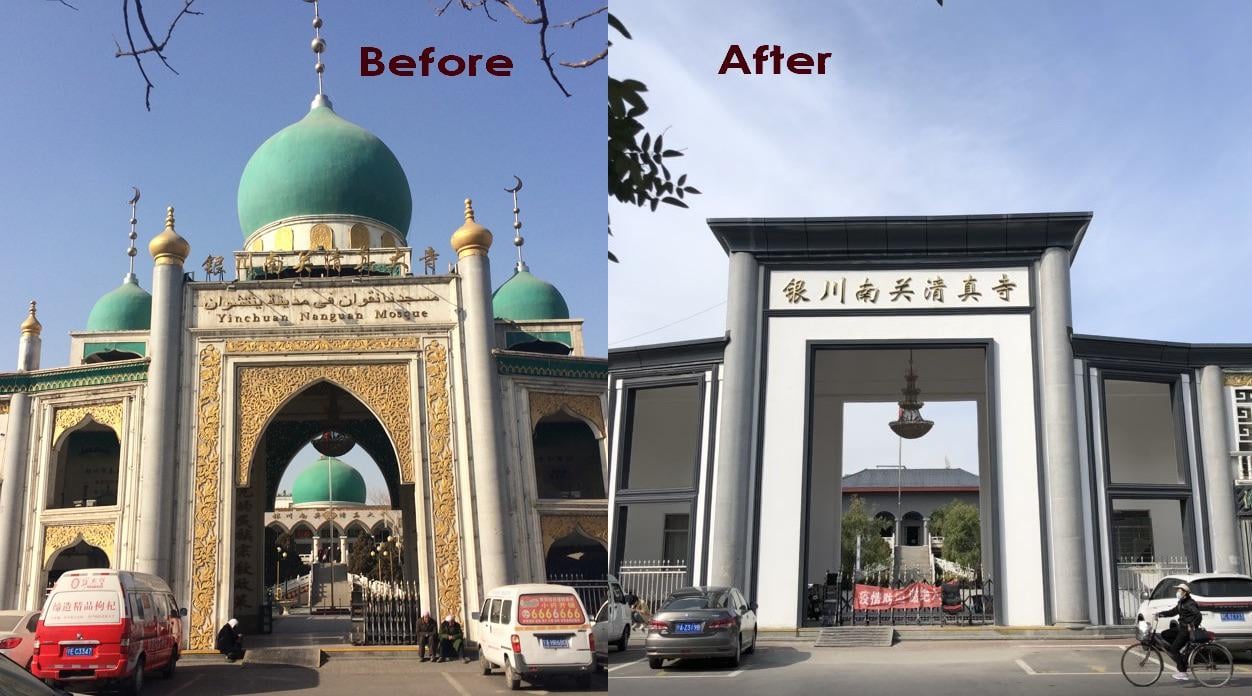[ad_1]

The Nanguan Mosque in Yinchuan, China is a historic mosque that dates back to around 1644. The mosque was originally built during this time period and went through an expansion in 1953 to accommodate more worshippers. However, in 2020, the mosque was severely damaged and mutilated, leading to concerns about the preservation of this important cultural and religious site.
The Nanguan Mosque is a significant cultural and religious landmark in Yinchuan, serving as a place of worship for the local Muslim community. The mosque’s architecture and design reflect the rich history and heritage of the region, making it an important symbol of cultural and religious identity.
The extent of the damage inflicted on the mosque in 2020 is not fully clear, but reports suggest that the building suffered significant mutilation. This incident has raised concerns about the preservation of historical and religious sites in China, highlighting the need for increased protection and conservation efforts.
The Nanguan Mosque’s mutilation serves as a reminder of the importance of preserving cultural and religious heritage sites for future generations. It also highlights the challenges faced by minority communities in China, particularly in the context of religious freedom and cultural preservation. Efforts to restore and protect the mosque are ongoing, with the hope that it can continue to serve as a place of worship and reflection for generations to come.
